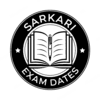UPSC Syllabus 2025 – The Union Public Service Commission (UPSC) conducts the Civil Services Examination (CSE) every year to recruit officers for India’s prestigious civil services like the IAS, IPS, IFS, and other central services. Understanding the syllabus is the first and most critical step for success in this highly competitive examination. Let’s dive into a detailed analysis of the UPSC Civil Services Syllabus to help you strategize your preparation effectively.
Overview of UPSC Civil Services Examination
The UPSC Civil Services Examination (CSE) is one of the toughest competitive exams in India. Every year lakhs of candidates appear for UPSC CSE exam. UPSC civil service exam is divided into three stages – 1) Prelims exam, 2) Mains Exam, 3) Interview. Candidates preparing for UPSC have to appear for prelims exam first, which is consists of MCQ questions. After clearing the prelims, candidates are eligible to appear for UPSC mains exam which includes subjective or written questions. For interview process only those students can appear who clear UPSC mains exam. The objective is to assess a candidate’s academic knowledge, problem-solving skills, analytical thinking, and suitability for administrative roles.
UPSC Civil Services Syllabus Key Highlights
| Exam Information | Details |
| Exam Conducting Authority | Union Public Service Commission (UPSC) |
| UPSC Exam Frequency | Once a Year |
| Mode of Exam | Offline (Pen & Paper) |
| UPSC Exam Eligibility | Graduate in any discipline from a recognized university |
| UPSC Age Limit | 21-37 Years (Varies for Categories) |
UPSC CSE Exam Pattern
The UPSC CSE consists of three stages – Prelims, Mains and Interview and each stage has different pattern. Check below UPSC civil services exam pattern for prelims, mains and interview:
1. UPSC Prelims Exam Pattern
The UPSC Prelims exam serves as a qualifying stage. It includes two objective-type papers:
- General Studies Paper-I (GS-I)
- General Studies Paper-II (CSAT)
Key Points:
- Mode: Objective
- Duration: 2 hours for each paper
- Total Marks: 400 (200 each)
- Negative Marking: Yes (1/3rd of the marks assigned to a question)
2. UPSE Civil Services Mains Exam Pattern
The Mains Examination assesses candidates’ in-depth knowledge of subjects. It comprises nine descriptive papers, out of which seven are considered for merit ranking.
Key Points:
- Mode: Descriptive
- Duration: 3 hours per paper
- Total Marks: 1750 (excluding 275 for the interview)
3. Personality Test (Interview)
The final stage is the Personality Test, where candidates’ communication skills, confidence, and suitability for administrative roles are evaluated.
UPSC Civil Services Syllabus 2025
UPSC civil services syllabus is divided in two parts – 1) UPSC prelims syllabus, 2) UPSC mains exam syllabus. Candidates who are preparing for UPSC exam can check the detailed UPSC prelims syllabus and mains syllabus.
UPSC Civil Services Prelims Syllabus
The UPSC Prelims syllabus consists of two papers:
General Studies Paper-I (GS-I)
- Current events of national and international importance
- History of India and the Indian National Movement
- Indian and World Geography
- Physical, Social, Economic Geography
- Indian Polity and Governance
- Constitution, Political System, Panchayati Raj, Rights Issues
- Economic and Social Development
- Sustainable Development, Poverty, Inclusion, Demographics
- Environmental Ecology, Biodiversity, and Climate Change
- General Science
General Studies Paper-II (CSAT)
- Comprehension
- Interpersonal Skills
- Logical Reasoning and Analytical Ability
- Decision-Making and Problem-Solving
- Basic Numeracy and Data Interpretation
UPSC Civil Services Syllabus for Mains Exam
The UPSC Mains syllabus is divided into compulsory and optional papers.
Compulsory Papers
- Essay: Topics on social, political, economic, or environmental issues.
- General Studies (GS):
- GS-I: Indian Heritage, History, and Geography
- GS-II: Governance, Constitution, Polity, Social Justice, and International Relations
- GS-III: Technology, Economic Development, Bio-Diversity, Environment, Security
- GS-IV: Ethics, Integrity, and Aptitude
Optional Subject Papers
Candidates can choose one subject from a list of optional subjects such as Public Administration, History, Sociology, etc.
UPSC Personality Test Syllabus
The interview assesses:
- Decision-making skills
- Leadership qualities
- Communication and interpersonal skills
- Awareness of current events
Preparation Strategy for UPSC
- Understand the Syllabus Thoroughly Knowing the syllabus in detail helps in focused preparation.
- Effective Time Management Allocate time for each subject based on your strengths and weaknesses.
- Follow Standard Books
- Indian Polity by Laxmikanth
- History of Modern India by Bipin Chandra
- Environment by Shankar IAS
- Practice Answer Writing Regular writing practice helps in time management during the exam.
- Stay Updated with Current Affairs Read newspapers like The Hindu and magazines like Yojana.
- Take Mock Tests Test your preparation level through mock tests and previous year papers.
Conclusion
Preparing for UPSC is a journey of dedication and persistence. With a thorough understanding of the UPSC Civil Services Syllabus and a well-structured preparation strategy, success is within reach. Keep revising, stay motivated, and believe in yourself. Good luck!
FAQs on UPSC Civil Services Syllabus
Is the UPSC syllabus the same every year?
The syllabus remains consistent, but minor changes may occur based on exam notifications.
What is the weightage of current affairs in the syllabus?
Current affairs are integral, particularly for the Prelims and Mains General Studies papers.
Can I prepare for UPSC while working?
Yes, with a disciplined schedule, many working professionals have cleared UPSC.
How many optional subjects can I choose?
You can choose only one optional subject for the Mains.
How important is the Personality Test?
The Personality Test carries 275 marks and plays a crucial role in determining the final rank.







